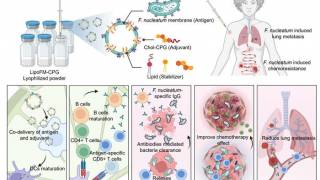Pancreatic Cancer Treatment Worked on Mice

Innovative research conducted by Tel Aviv University (TAU) researchers reveals promising pancreatic tumor treatment.
This new TAU treatment reduced the number of cancer cells by 90 percent in the developed tumors in mice.
This is important news since pancreatic ductal adenocarcinomas (PDAC) have limited response to current treatments and a low 5-years survival rate of about 6 percent.
The research was published on October 22, 2019, and holds great potential for the development of a new effective therapy to treat this aggressive cancer in humans.
The study was led by Prof. Malca Cohen-Armon and her team at TAU's Sackler Faculty of Medicine, in collaboration with Dr. Talia Golan's team at the Cancer Research Center at Sheba Medical Center.
"In research published in 2017, we discovered a mechanism that causes the self-destruction of human cancer cells during their duplication (mitosis) without affecting normal cells," explains Prof. Cohen-Armon, in a press release published on December 2, 2019.
"We have now harnessed this information to efficiently eradicate human pancreatic cancer cells in xenografts. The current results were obtained using a small molecule that evokes this self-destruction mechanism in a variety of human cancer cells.
"The mice were treated with a molecule called PJ34, which is permeable in the cell membrane but affects human cancer cells exclusively. This molecule causes an anomaly during the duplication of human cancer cells, provoking their rapid cell death. Thus, cell multiplication itself resulted in cell death in the treated cancer cells."
A month after being injected with PJ34 daily for 14 days, the pancreatic cancer cells in the tumors of the treated mice experienced a relative drop of 90%. In one mouse, the tumor completely disappeared.
"It is important to note that no adverse effects were observed, and there were no changes in the weight gain of the mice, nor in their behavior," says Prof. Cohen-Armon.
This mechanism acts efficiently in other types of cancer resistant to current therapies. The molecule PJ34 is being tested in pre-clinical trials according to FDA regulations.
The research was funded through contributions to American Friends of Tel Aviv University.
Cancer vaccine and treatment news published by Vax Before Cancer
Our Trust Standards: Medical Advisory Committee

























